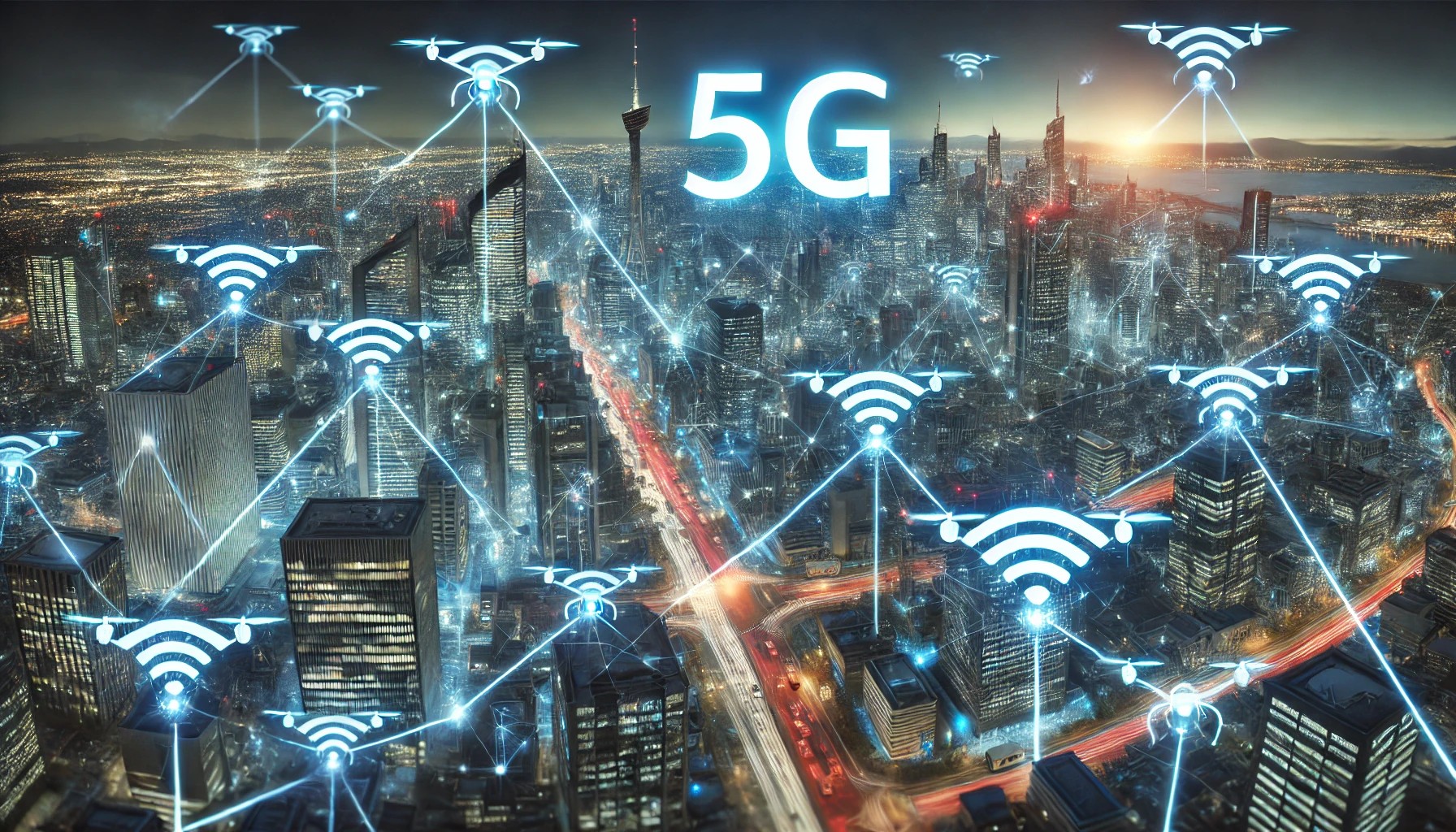The 5G standoff, known as “squaring the net,” is shaping the future of global connectivity. As nations and tech giants compete for dominance, 5G technology promises faster speeds, lower latency, and revolutionary applications like smart cities and autonomous vehicles. But this race isn’t just about innovation—it’s also about security, trade wars, and geopolitical influence. Who will lead the 5G revolution? Dive into the global battle for 5G supremacy, uncover the key players, and explore the challenges shaping the next era of digital transformation. Stay ahead of the curve with this in-depth analysis.
The emergence of 5G technology has sparked a global race among tech giants, governments, and telecom companies. This intense competition, often referred to as “the 5G standoff squaring the net,” is about more than just faster internet—it’s about shaping the future of connectivity. In this blog post, we’ll explore the key players, technological advancements, and geopolitical implications of this 5G showdown.
Understanding the 5G Standoff
The term “5G standoff squaring the net” describes the fierce rivalry among stakeholders aiming to lead in 5G development and deployment. This next-generation wireless technology promises unparalleled speeds, minimal latency, and enhanced connectivity, setting the stage for future innovations.
Key Aspects of the 5G Standoff:
- Speed and Performance: 5G networks are expected to be up to 100 times faster than 4G, with latency as low as 1 millisecond.
- Capacity and Connectivity: 5G can support a vast number of devices per square kilometer, fueling the growth of the Internet of Things (IoT).
- Technological Advancement: 5G is anticipated to drive progress in areas like autonomous vehicles, smart cities, and augmented reality.
The Concept of “Squaring the Net”
“Squaring the net” refers to the strategic efforts of various stakeholders vying for dominance in the 5G arena. This involves capturing market share, securing technological superiority, and influencing global 5G standards.
Elements of Squaring the Net:
- Global Rivalry: Nations and corporations are competing to lead in 5G technology, focusing on technological advancements, patent acquisitions, and shaping global standards.
- Regulatory Challenges: Diverse regulations across countries create a complex landscape for global 5G deployment.
Major Players in the 5G Race
Several key entities are at the forefront of the 5G competition, each with unique strengths and strategies.
1. Huawei
- Strengths: A leading global provider of 5G technology, known for advanced infrastructure and competitive pricing.
- Challenges: Faces scrutiny and restrictions from various countries due to security and geopolitical concerns.
2. Ericsson and Nokia
- Strengths: European companies with significant contributions to 5G infrastructure and a strong presence in global markets.
- Challenges: Competing against aggressive pricing from rivals and navigating geopolitical tensions.
3. Qualcomm
- Strengths: A key player in 5G chipset development, essential for mobile devices and infrastructure.
- Challenges: Faces legal and competitive challenges in the global market.
Technological Innovations Driving the 5G Standoff
The 5G standoff is propelled by significant technological advancements poised to transform digital connectivity.
1. Network Slicing
- Description: Allows multiple virtual networks to operate on a single physical 5G infrastructure, each tailored for specific applications or services.
- Implications: Enables customized services for different industries, enhancing efficiency and performance.
2. Edge Computing
- Description: Processes data closer to the source, reducing latency and improving real-time data analysis.
- Implications: Crucial for applications like autonomous vehicles and industrial automation.
3. Enhanced Device Connectivity
- IoT Expansion: 5G will support a vast number of connected devices, from smart home gadgets to industrial sensors, driving the growth of the Internet of Things.
- Smart Cities: Enhanced connectivity will support the development of smart city infrastructure, including intelligent transportation systems and energy management solutions.
Geopolitical Implications
The 5G standoff has significant geopolitical consequences, influencing international relations and national security policies.
1. Security Concerns
- Data Privacy: Concerns over data interception and surveillance have led to debates over which companies should be allowed to build 5G infrastructure.
- Supply Chain Security: Ensuring the integrity of hardware and software components is a critical issue.
2. Economic Impact
- Market Leadership: Dominance in 5G technology is expected to provide economic advantages, including job creation and leadership in future technological developments.
- Trade Relations: 5G leadership influences trade dynamics, with countries vying for advantageous positions in the global market.
The Future of the 5G Standoff
As the 5G standoff progresses, several trends are likely to shape the future of this technology.
1. Standardization Efforts
- Global Standards: The competition to define global 5G standards impacts how the technology will be implemented worldwide.
- Regional Variability: Different regions may adopt varying standards and regulations, influencing the overall trajectory of 5G deployment.
2. Innovation and Growth
- New Applications: 5G is expected to drive innovation in various sectors, leading to the development of new applications and services.
- Economic Development: The deployment of 5G networks is anticipated to stimulate economic growth and create new business opportunities.
Conclusion
The 5G standoff, or “squaring the net,” represents a pivotal moment in the evolution of digital connectivity. As global stakeholders compete for leadership in this high-speed race, the outcomes will influence not only the future of technology but also international relations, economic development, and societal progress. Understanding the dynamics of the 5G standoff provides valuable insights into the transformative potential of 5G and helps prepare for the opportunities and challenges that lie ahead.
FAQs on the 5G Standoff: Squaring the Net
Q1: What is the “5G standoff squaring the net”?
A: It refers to the intense global competition among tech companies and governments to dominate 5G technology. This battle involves speed, infrastructure, security concerns, and economic power.
Q2: Why is 5G technology so important?
A: 5G offers ultra-fast speeds, low latency, and high connectivity, enabling advancements in smart cities, autonomous vehicles, and the Internet of Things (IoT). It is set to revolutionize industries and economies.
Q3: Who are the key players in the 5G race?
A: Major players include Huawei, Ericsson, Nokia, Qualcomm, and U.S.-based telecom providers. Governments, especially in the U.S., China, and Europe, are also heavily involved.
Q4: What are the security concerns surrounding 5G?
A: Countries worry about data privacy, cyber threats, and potential surveillance risks, leading some to ban or restrict certain 5G providers.
Q5: How does 5G impact the economy?
A: 5G is expected to create millions of jobs, boost GDP, and drive innovation across multiple industries, from healthcare to manufacturing.
Q6: What is the future of the 5G standoff?
A: The battle will continue with more advancements, regulatory changes, and new applications emerging. Nations and companies will keep striving to lead in this digital transformation.










